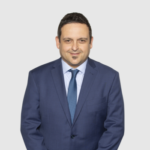What a Self-Managed Superannuation Fund (SMSF) member needs to know!
The Federal Election result on 18 May 2019 was a surprise to many! For SMSF members it was definitely a positive result. Following the major changes that were implemented on 1 July 2017, it is a welcome relief that there is some certainty on the rules in the superannuation area, at least in the short term.

Major changes impacting SMSF members
The following shows a conclusion of the short term changes affecting Superannuation since the election:
- Excess franking credits will continue to be refunded to an SMSF – a relief to many self-funded retirees given this would have affected the retirement savings of most SMSF members in a major way.
- Catch-up contributions measure will be available from 1 July 2019 – those members with a balance of less than $500,000 prior to 30 June will be eligible to make ‘catch up’ concessional contributions over a rolling 5 year period. As an example: John has made concessional contributions of $10,000 for the 30 June 2019 financial year, meaning he has not used $15,000 of his cap. His super balance at 30 June 2019 is $400,000. For the 30 June 2020 financial year, he is able to put in $40,000 of concessional contributions being $25,000 for 30 June 2020 plus the $15,000 unused for the 2019 year. This measure will be very handy for those with balances under $500,000.
- No increase in adjusted taxable income threshold – the additional contribution tax of 15% will only continue to apply to superannuation members with adjusted taxable income of $250,000 or more.
- Borrowing will continue to be an option in the SMSF environment – it is still an opportunity available to SMSF’s – borrowing arrangements within super are mainly done on property and are ‘limited recourse’. A related party lender is also permitted but there are strict rules around this. Please note: most major banks no longer provide lending to SMSF’s although there may be some smaller lenders in the market and borrowing in super remains more complex and costly to set up as compared to a standard loan so you must seek professional advice if you wish to pursue this option.
- 10% test not applicable – members will have the flexibility to be able to claim personal super contributions (up to the total limit of $25,000) as a deduction regardless of how much employer income they have. This is particularly useful for those who have employers that don’t offer salary sacrificing.
- Non-Concessional Contributions limit no decrease – will continue to be $100,000 per year or $300,000 over three year period (subject to the age and eligibility requirements).
- The Super Guarantee lower limit for employers remains at salary & wages of $450 per month.
Proposed measures that aren’t yet legislated
- Members aged 65 or 66 on 1 July of the applicable year will be able to use the ‘bring forward rule‘ to put up the $300,000 (3 x $100,000) of non-concessional contributions (if eligible). This is proposed to come into affect from 1 July 2020 (previously you had to be 64 on 1 July).
- Members aged 65 or 66 on 1 July of the applicable year won’t need to meet the ‘work test’ to contribute. This is also proposed to come into affect from 1 July 2020.
- Spouse contributions – there will be an increase to the age limit of the receiving spouse from 69 to 74.
- SMSF’s can have up to six members – currently an SMSF has a limit of four members. A bill was drafted prior to the election to increase the limit to six but unfortunately it was not passed in time and became void. There are plans to reintroduce this measure.
A word of caution – as the above measures are not law, given past experience, you should not act on measures until they are law. The election was a good reminder of this given all proposed Labor measures became void when many thought (incorrectly) they were a certainty to come in.
If you would like to know more about Self-Managed Superannuation Funds or have queries in relation to your superannuation, please contact one of our Superannuation Specialists today. Alternatively, you can complete your details below and we’ll be in touch or give us a call on (03) 9835 8200.
